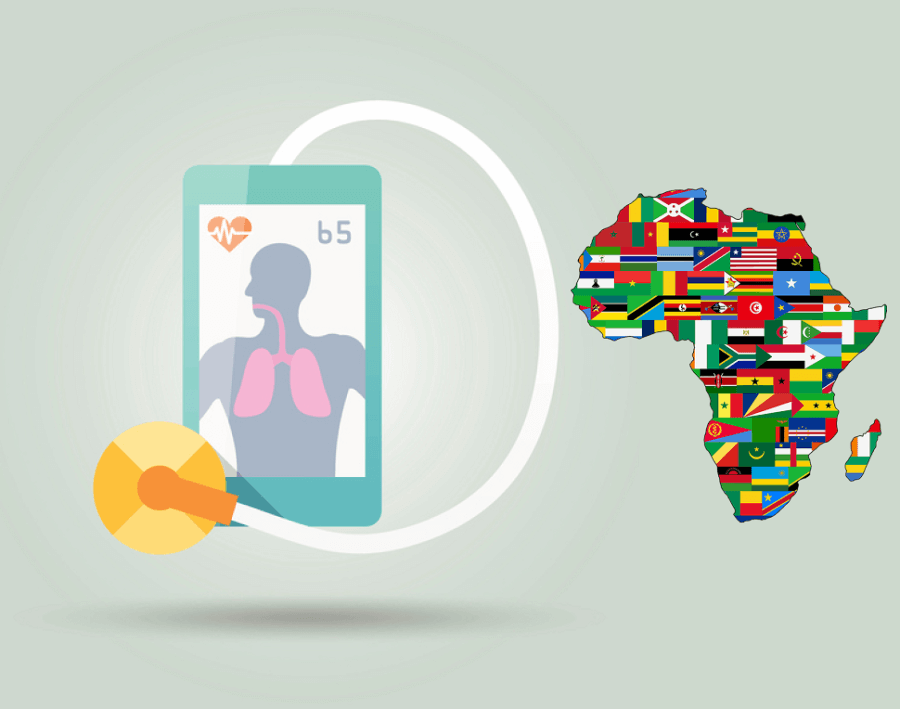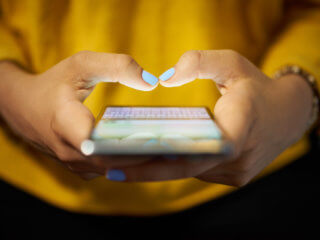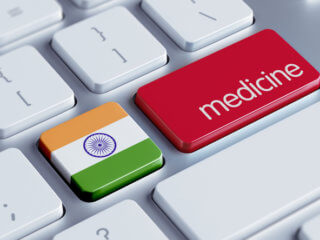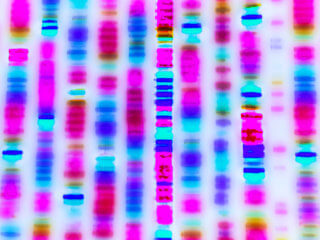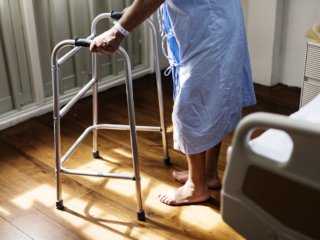Growth of mHealth apps in Africa: A brief overview
According to a GSMA report, at the end of 2016, 46% of the population in Africa subscribed to mobile service providers, equivalent to more than half a billion people, and an additional of 725 million unique subscribers is expected by 2020. In a report by the IFC, the private-sector arm of the World Bank, estimated that the market for healthcare in sub-Saharan Africa would more than double to $35 billion by 2016 and require some $25 billion-$30 billion of investment in physical healthcare assets alone in the decade 2022.
Frost & Sullivan’s research studies confirm that Africa is currently the fastest-growing and second-largest mobile phone market in the world.
It is estimated that by 2020, mobile-based industries will be worth a consolidated $5.1 billion. The recent developments across the continent have been attracting attention from different stakeholders in the mHealth provides who are realizing that the rise of mobile phones in Africa represents a powerful opportunity to develop integrated solutions that leverage mobile health.
This has led to the boom in the mHealth industry in most African countries over the past two years with countries like South Africa, Nigeria, Uganda and Kenya leading the pack in terms of penetration and investment.
The solutions cover a wide array of sectors of the health industry but so far the most popular sectors have been maternal health and child development and doctor-patient communications apps (i.e. apps that connect people to medical professionals).
Top 10 mHealth apps in Africa
1. Vula Mobile
The app provides a network of healthcare professionals in South Africa. Health workers can ask for advice over a dedicated messaging platform, and decide on the best course of care for their patients. Beyond the impact on individual patient care, Vula is being used as an experiential training tool. Using the app, primary health workers learn case-by-case how to manage conditions with specialist guidance.
The University of Pretoria and the University of KwaZulu-Natal’s Family Medicine Departments in South Africa are using Vula to monitor and train their medical and clinical associate students remotely.
Website: http://www.vulamobile.com
Email: [email protected]
2. OMOMI
Omoni (meaning ‘my child’), is a mobile platform for pregnant women and mothers of under-5s that enables them to monitor their children’s health, provides access to specific and life-saving maternal and child health information, as well as medical expertise. The services can be accessed through a dedicated mobile app or SMS. The app is made by MOBicure which received an Expo Live grant for developing the app.
Some of the app’s features include mother’s community, quiz game, growth monitor, health facts, biodata, maternal calculator, immunization tracker and diarrhoea management.
Website: http://www.mobicure.biz/omomi-app/
Email: [email protected]
3. LifeQ
LifeQ generates and makes available, high-value personalized health information by using physiological monitoring through optical sensors and bio-mathematical modelling, which would traditionally be inaccessible or only obtainable through costly, invasive and inaccessible means, the technology helps its users better understand their health and fitness.
The data from the sensors is sent to a companion mobile app which analyses the data and makes it available to the user. LifeQ is one of the most successful apps on the continent and has expanded beyond Africa to countries like the United States.
Website: http://www.lifeq.com/
Email: [email protected]
4. Appy Saúde
Appy Saúde is a mobile health platform offering the biggest database of healthcare facilities in Angola with over 1,800 establishments listed on the app.
Users can access information such as services offered, medical specialities covered, insurance accepted, as well as the contact details of the 1,700 medical facilities listed, which are located around the full span of Angola. The app is free to download on iOS or Android.
Website: http://www.appy.co.ao/en/appy-saude/
Email: [email protected]
Phone: +244 948 144 180
5. DrBridge
DrBridge is a mobile application that helps doctors follow up with patients and deliver care plans through text messaging, email and app-to-app interactions. Used mostly in Egypt, users can use this app to make appointments with a doctor online via Vezeeta, an online appointment booking site. Doctors on the other hand can use DrBridge to access a patient’s medical records that have been stored online.
Website: https://www.vezeeta.com
Email: [email protected]
6. Hello Doctor
Currently available in 10 African countries, Hello Doctor provides free essential healthcare information that is updated daily.
The app also provide access to healthcare advice, answers to health-related questions in the live group chat forums, confidential one-on-one text conversation with a doctor (also in local languages), and the ability to receive a call back from a doctor within 60 minutes.
Website: https://www.hellodoctor.co.za/
Email: [email protected]
7. MomConnect
Mom Connect is an SMS-based application that provides information and advice for pregnant women in South Africa. Managed by the South African Department of Health with funds from the United States government and Johnson & Johnson, the app advises pregnant women on what to do at any stage of their pregnancy. Post-natal, the app continues to provide medical information to mothers for a year. Most information provided during this period is centered on child vaccination.
Website: http://www.health.gov.za/index.php/mom-connect
Email: [email protected]
8. Matibabu
Matibabu is a smartphone app that helps to diagnose malaria without a blood sample. Using a custom-made piece of hardware called a “matscope”, which consists of a red LED and a light sensor, it can pierce beyond the skin to reach the Red Blood Cells.
A finger is inserted into the device to diagnose and the results are viewed via a smartphone. This provides users with their malaria status in the shortest possible time with up to 80 percent accuracy. The service is currently only available in Uganda.
Website: matibabu.thinkitlimited.com
Email: [email protected]
9. Gifted Mom
Gifted Mom is a mobile health SMS based platform created to help women and pregnant women in rural communities to get the healthcare they need. It uses low-cost SMS technology to provide these women access to medical advice. It sends scheduled reminders to women to undergo regular antenatal checks and to follow vaccination schedules.
It assists users in tracking the vaccination programs of their children aged up to 5 years. The app also propagates safe sexual practices and offers family planning advice. Furthermore, it offers a FAQ service and connects its subscribers directly with doctors.
There is a one-off subscription fee of less than one dollar, but all subsequent messages which include alerts are free. The service is available in the North, Western and Central Africa.
Website: http://www.giftedmom.org
Email: [email protected]
10. Sehatuk
The Sehatuk, meaning “Your Health” in Arabic, provides a huge database of drugs available in Morocco, along with their prices and dosages. The app provides useful information calling up an ambulance as well as news on the medical insurance, and it recently won the African Content Awards during the African Ministerial Forum of Science Technology and Innovation in October.
Email: [email protected]
Website: http://www.dialtechnologies.net/en/home/
Future pospects of African mHealth market
Africa’s population is expected to double to 2.4 billion people projected between 2015 and 2050. The mHealth ecosystem in Africa is on the rise and doesn’t appear to be slowing down any time soon. More than half a billion people are subscribed to mobile service providers, and an additional of 725 million unique subscribers is expected by 2020.
With cell phone proliferation on the rise, the use of mobile phones to amend health conditions will only become more popular because it not only removes the barrier of distance, but also captures the attention of users through the use of everyday used gadgets (phones).
This along with the fact that most of the solutions integrate SMS components which make them accessible through virtually any phone means these apps are capable of reaching anyone. This will transform the healthcare ecosystem on the continent as mobile phones are the most widely accessed form of technology in the continent, and recent research studies confirm that Africa is currently the fastest-growing mobile phone market in the world.
With the recent tech innovation trends in Africa, it seems African innovators won’t miss the mark to incorporate cutting edge tech in the space of AI, Big Data, IoT, Virtual Reality and Blockchain in their mhealth or ehealth applications.
It is estimated that by 2020, mobile-based industries will be worth a consolidated $5.1 billion and grow to an over $10.1 billion industry by 2025, with eHealth occupying big chunk of that pie.
Image credit:

